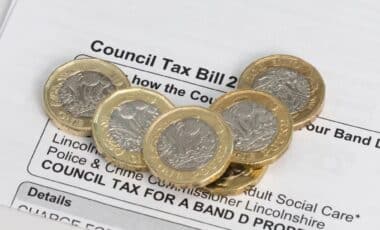Britons face a challenging financial landscape as new tax policies set to take effect in 2025 threaten to increase household bills significantly. With rising costs across various sectors, from education to council tax, millions of families are preparing for what critics are calling a “January of discontent.” Analysis indicates that middle-class households will bear the brunt of these changes, sparking concerns over the economic pressures facing the nation.
January of Discontent Rising Costs for Middle-Class Families
The January of discontent signals a challenging year ahead for middle-class households as tax increases and rising expenses converge. Families across the UK are bracing for significant financial adjustments, with many already feeling the strain on their budgets.
Higher Tax Burdens on Middle-Class Families
Recent analysis highlights that middle-class families could face a staggering £8,000 increase in their annual bills due to impending tax policies. This increase stems from various factors:
- Tax threshold freezes: Adding £3,520 annually to household costs.
- Employer national insurance contributions: Estimated at £1,410, much of which will be passed to workers and consumers.
- VAT on private education: Raising school fees by an average of £2,626.
- Grocery bills: Expected to rise by £14.50 due to indirect taxes.
- Council tax: Likely to climb by £159 for typical households.
These changes underscore a shifting tax landscape that places a substantial burden on families striving to maintain a middle-class lifestyle.
Impact on Families with Children in Private Education
For families with children in private schools, the financial impact is particularly severe. The addition of VAT on tuition fees significantly raises educational expenses, potentially pushing private education beyond the reach of many. Such measures are sparking widespread criticism and calls for policy reconsideration.
Criticism and Concerns Over Policy Direction
The scale of the proposed tax hikes has drawn sharp criticism from political figures and economic analysts. Shadow business secretary Andrew Griffith condemned the measures as “completely unacceptable” and indicative of a government “out of touch with middle Britain.” Griffith emphasised the disproportionate impact on aspirational families, describing the policy changes as “one of the biggest transfers from the aspirant class to the public sector.”
Expert Analysis on Public Sentiment
Carl Emmerson of the Institute for Fiscal Studies noted that the UK’s tax burden is reaching unprecedented levels, leaving many households feeling the pinch. The question, Emmerson suggested, is whether the public perceives the increased taxation as yielding tangible benefits in public services and infrastructure.
- Public services improvements: A key determinant in public perception of these tax changes.
- Household impacts: Average-income families will also face additional costs, estimated at £2,529 annually, further exacerbating financial pressures.
Government Responses and Mitigation Efforts
The Treasury has defended its tax policies, emphasising efforts to shield families from excessive financial strain. A spokesperson highlighted measures such as freezing fuel duties and increasing wages as steps to support households:
- Wage growth: Inflation-adjusted wages reportedly grew at the fastest rate in three years.
- Fuel duty freeze: Maintaining lower transportation costs for consumers.
While these measures aim to provide relief, critics argue that they are insufficient to offset the broader financial burdens imposed by the new tax regime.









